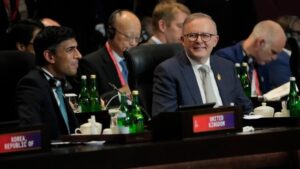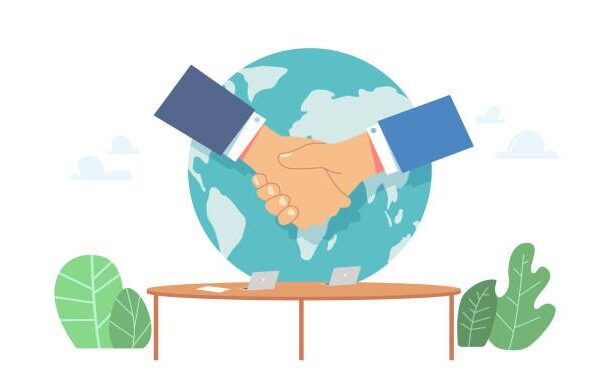On 17 November 2022 the Joint Standing Committee on Treaties (JSCOT) recommended the Australian Government take binding treaty action to bring the Australia-United Kingdom Free Trade Agreement into force. A day later on 18 November, the Committee recommended the Government also take binding treaty action to bring the Australia-India Economic Cooperation and Trade Agreement (ECTA) into force.
The Government expects broad support on legislation to implement the Agreements which must pass both Houses of Parliament next week.
The Australia-UK FTA will enter into force for both countries after Australia and the UK have confirmed with each other in writing, that they have completed their respective domestic requirements.
Like our Free Trade Agreement with the UK, the Government expects broad support on legislation to implement the ECTA with India when it is considered by Parliament next week. This Agreement will enter into force 30 days after both countries have confirmed with each other in writing that they have completed their respective domestic requirements.
JSCOT agreed the AUKFTA liberalisation outcomes appear balanced and, while noting there remain some barriers to trade in goods, it was recognised that on entry into force 99% of Australian goods exports by value would enter into the United Kingdom without tariffs. They also saw the liberalisation of the rules for services and investment as having the potential to open new markets for Australian service suppliers.
Amid fears of the UK’s cooling interest, Prime Minister Anthony Albanese formally met with current British Prime Minister Rishi Sunak in Bali on the sidelines of the G20 meeting. Mr Albanese has been open about wanting to finalise the deal by the end of the year and was previously concerned the UK’s tumultuous political environment would delay the free-trade agreement. He had discussed “fast-tracking” the free-trade agreement with former British prime minister Liz Truss before she resigned just 44 days into the job.
The Agreement with India will eliminate tariffs on over 90% of Australian goods exports to India by value. India’s high tariffs on agriculture, such as sheepmeat, wool, cotton, seafood, macadamia nuts and avocados will be removed, with the vast majority, or 85%, eliminated from the day ECTA enters into force. India will also substantially reduce its 150% tariff on bottled wine above $US5 and has guaranteed to extend to Australia any deeper access provided to future free trade agreement partners.
Early this year, Australia finalized an interim trade deal with India.
In associated news, the World Trade Organization Director-General is visiting Australia. Dr Ngozi Okonjo-Iweala is the first woman and first African to hold the position of Director-General of the WTO. In a press release issued today (22 November) jointly by Penny Wong, Murray Watt and Tim Ayres, they said they were very pleased to work with Dr Okonjo-Iweala in delivering significant outcomes from the WTO’s 12th Ministerial Conference (MC12) in June this year in Geneva.
Dr Okonjo-Iweala’s visit is an opportunity to discuss how Australia can continue to work with the WTO to implement those outcomes, including investing in reforms to ensure the WTO can respond more effectively to the challenges facing the multilateral trading system.
In recognition of the importance of the WTO to Australia’s economic resilience, Australia will commit $5 million over four years for targeted capacity building to assist developing countries and least developed countries implement the outcomes of MC12 and access the benefits of WTO membership.
For information on all aspects of international trade and shipping, contact us here at Colless Young. As licensed Customs Brokers and Freight Forwarders, we handle your imports and exports professionally and economically. We are based in Brisbane and offer a complete range of logistics services, by airfreight and sea cargo, through all Australian ports and airports.


